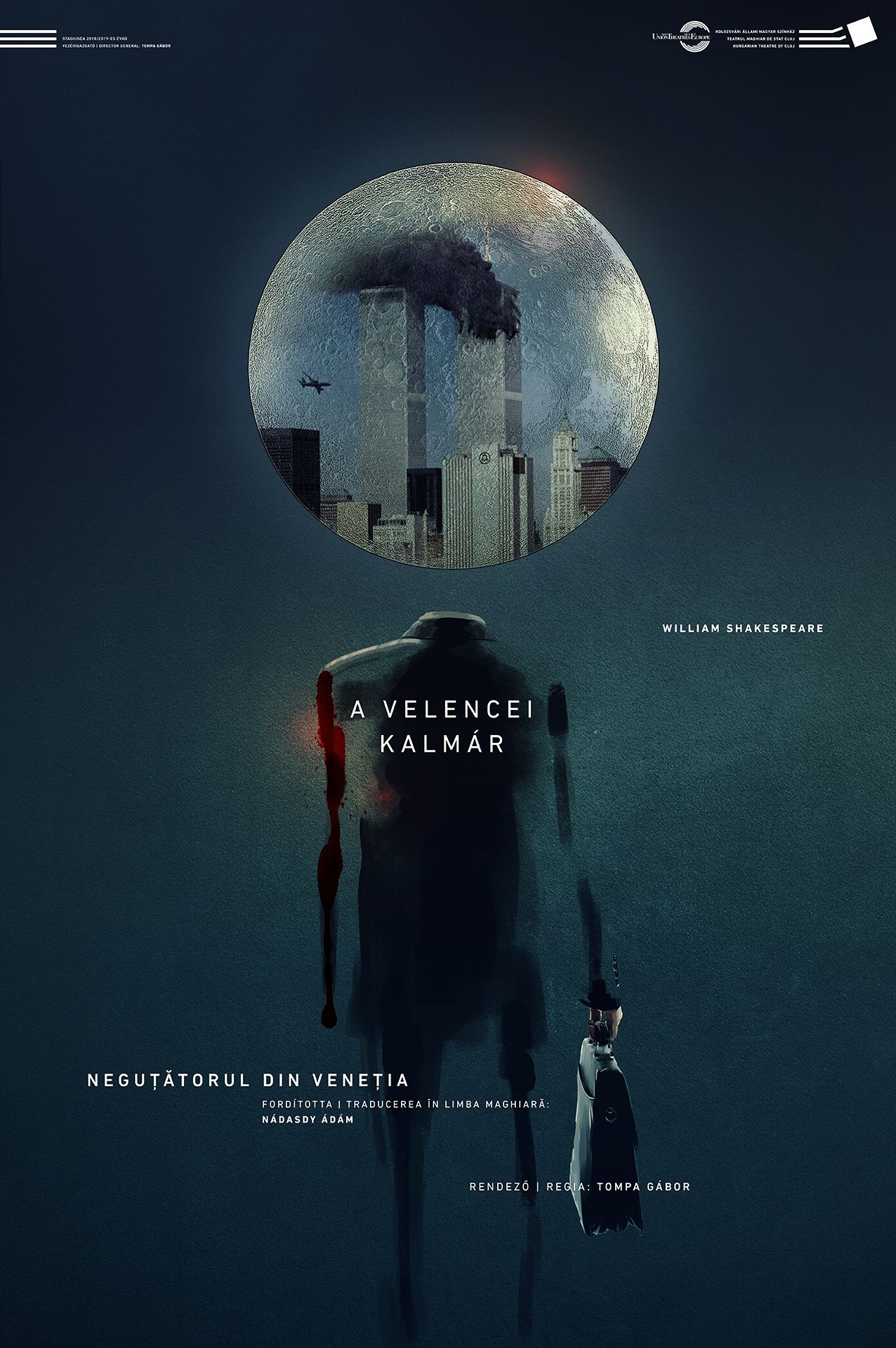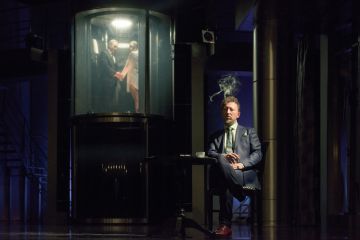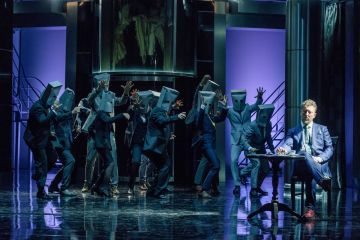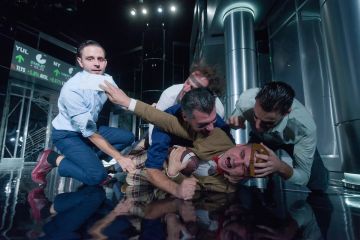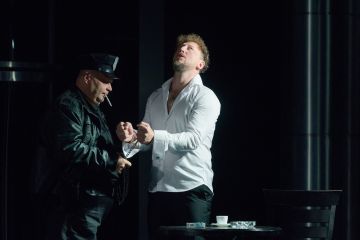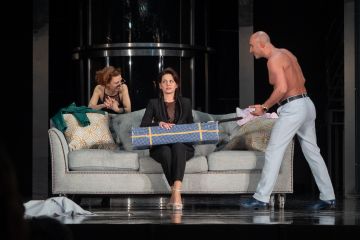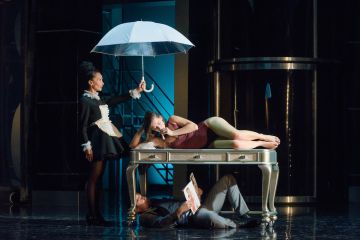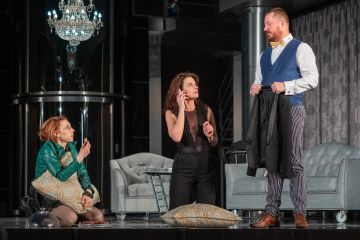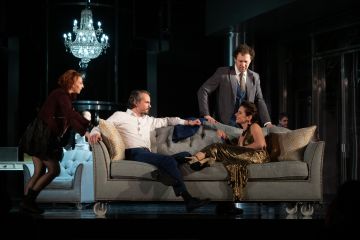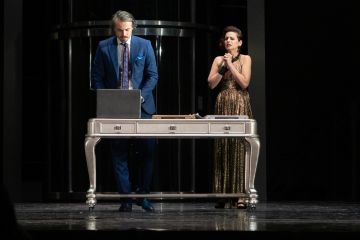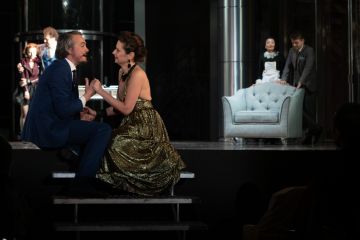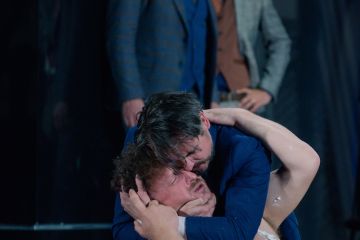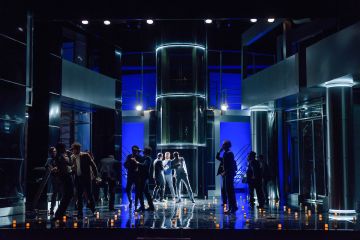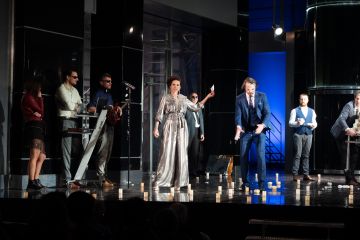The Merchant of Venice
Main stage
RO

EN

14+

Gábor Viola / Zsolt Bogdán
Balázs Bodolai
Ervin Szűcs
Loránd Farkas
Szabolcs Balla
Péter Árus
Zsolt Bogdán / Gábor Viola
Éva Imre
Enikő Györgyjakab / Andrea Vindis
Csilla Albert
Alpár Fogarasi
Csaba Marosán
Attila Orbán
Róbert Laczkó Vass
Lóránd Váta
Ferenc Sinkó / Paco Alfonsín
Áron Dimény
Melinda Kántor , János Platz
Melinda Kántor , Andrea Vindis / Enikő Györgyjakab
directed by
Gábor Tompa
Dragoș Buhagiar
András Visky
Botond Nagy , Emőke Veres
András Rancz
László Erőss
Gyopár Bocskai
Loránd Farkas , Szabolcs Balla , Ervin Szűcs
Enikő Györgyjakab , Paco Alfonsín
Márta Papp
Emőke Veres , Réka Zongor
The Merchant of Venice is a comedy about the blithely diffused struggle between Usury and Friendship, Revenge and Forgiveness, Disharmony and Harmony. (...) Fairy tale, dark comedy, moral parable or comedy dell'arte? The raw material gathered unconsciously within Shakespeare, only the stage master who intertwines the situations presented is conscious. But the craftsman is also a poet, and the enchanted raw material reflects the fullness of life, even when he does not want us to take it too seriously.
László Cs. Szabó: Velencei uzsora, belmonti muzsika /Venetian usury, belmontian music
The show takes place in the cold world of modern technology, where, in contrast, passions run high. Passions that point, first of all, toward narcissism and selfishness. At the same time, these characters are also prisoners of certain aspects of their own lives.
Nobody chooses to give up everything, or to say he or she is not interested in money. They all act according to their own interest, everything being manipulated by a complex network of interests and alliances. Of course, each character bears strong, sincere emotions; there is sex, love, eroticism. But the characters do not decide based on these. They only temporarily believe these things to be more important. Selfishness and self-interest interfere in all decisions reached. If we reflect on this idea, we can create a terribly cruel theatre. Of course, with elements of comedy, with comic situations, but essentially a greedy, cruel chase after “immortality”, survival or happiness.
Gábor Tompa









